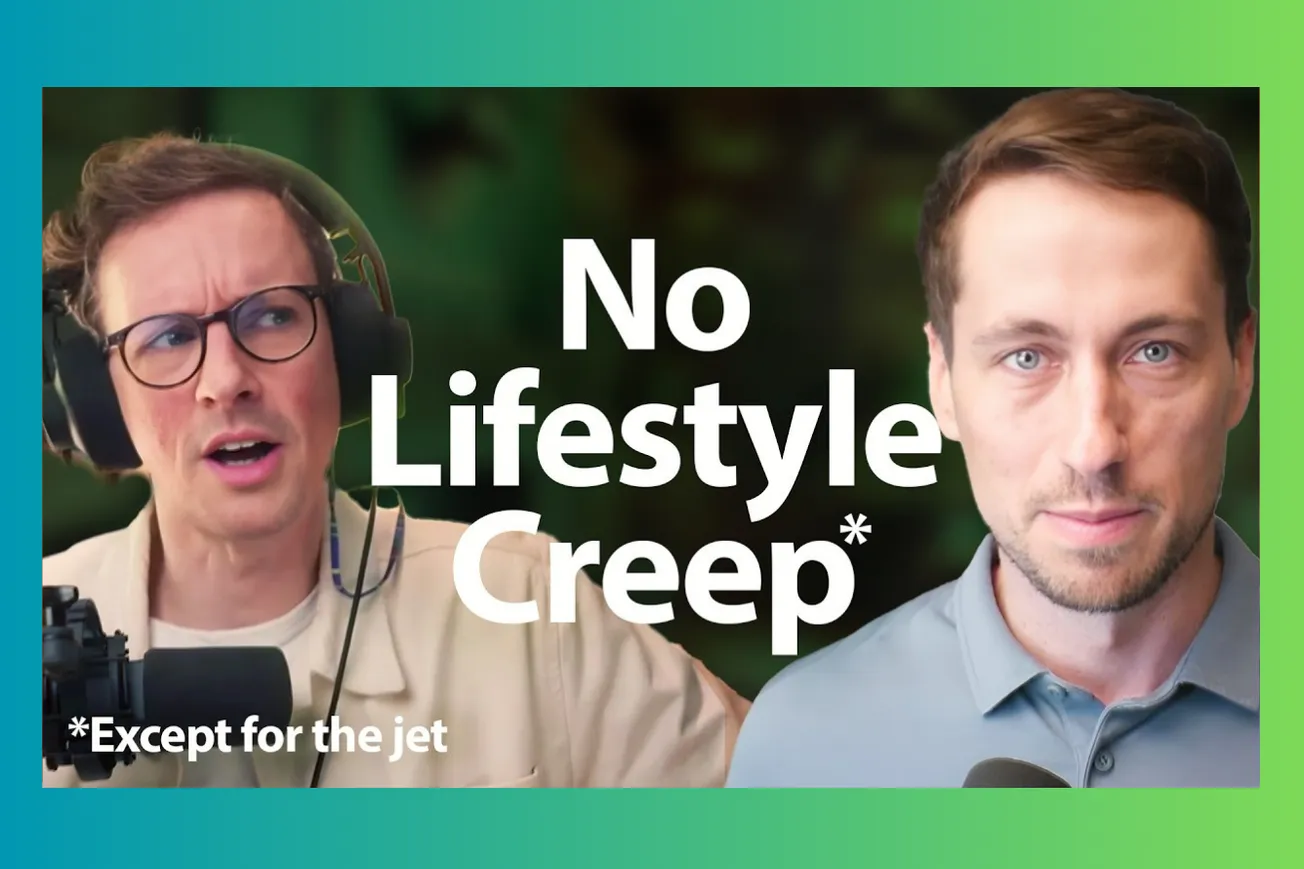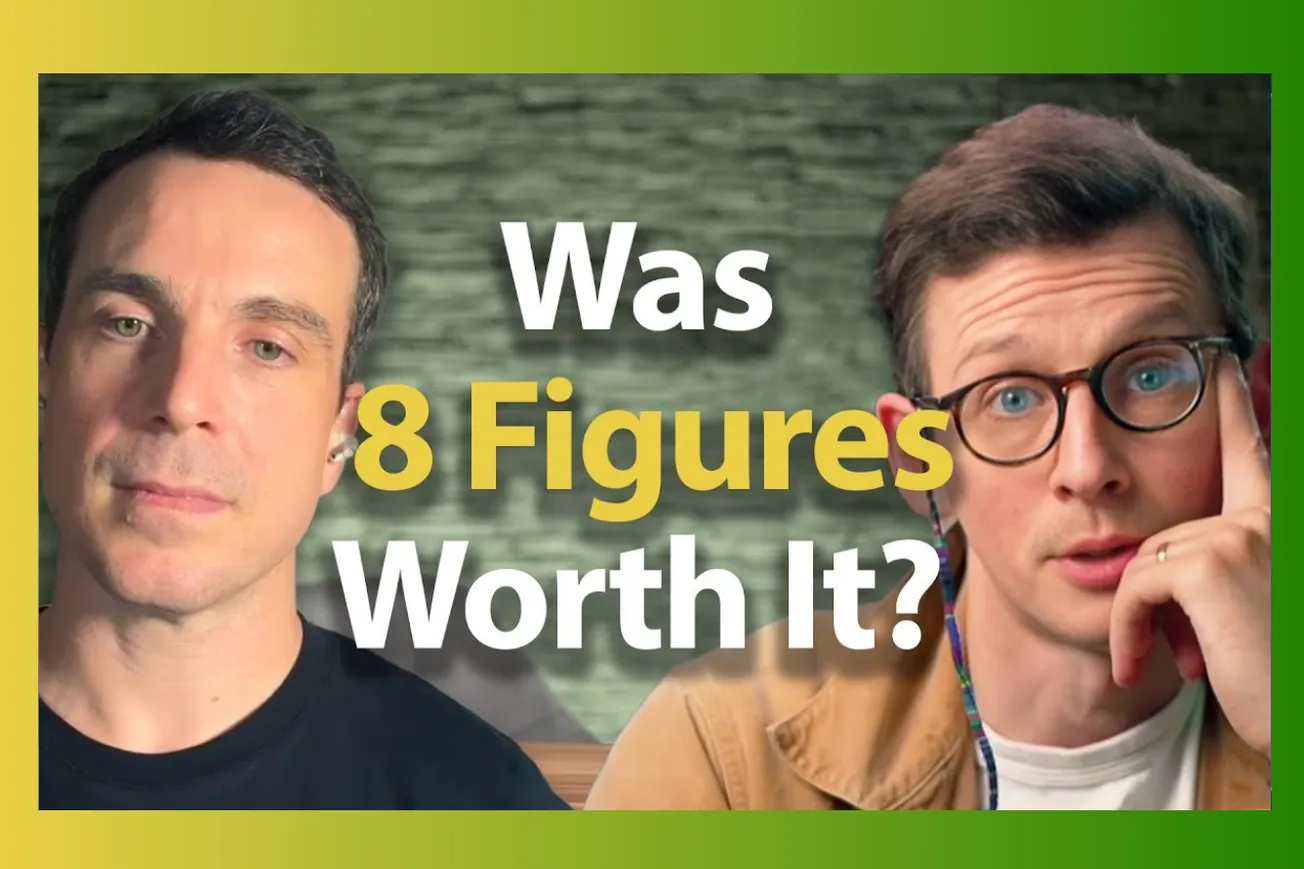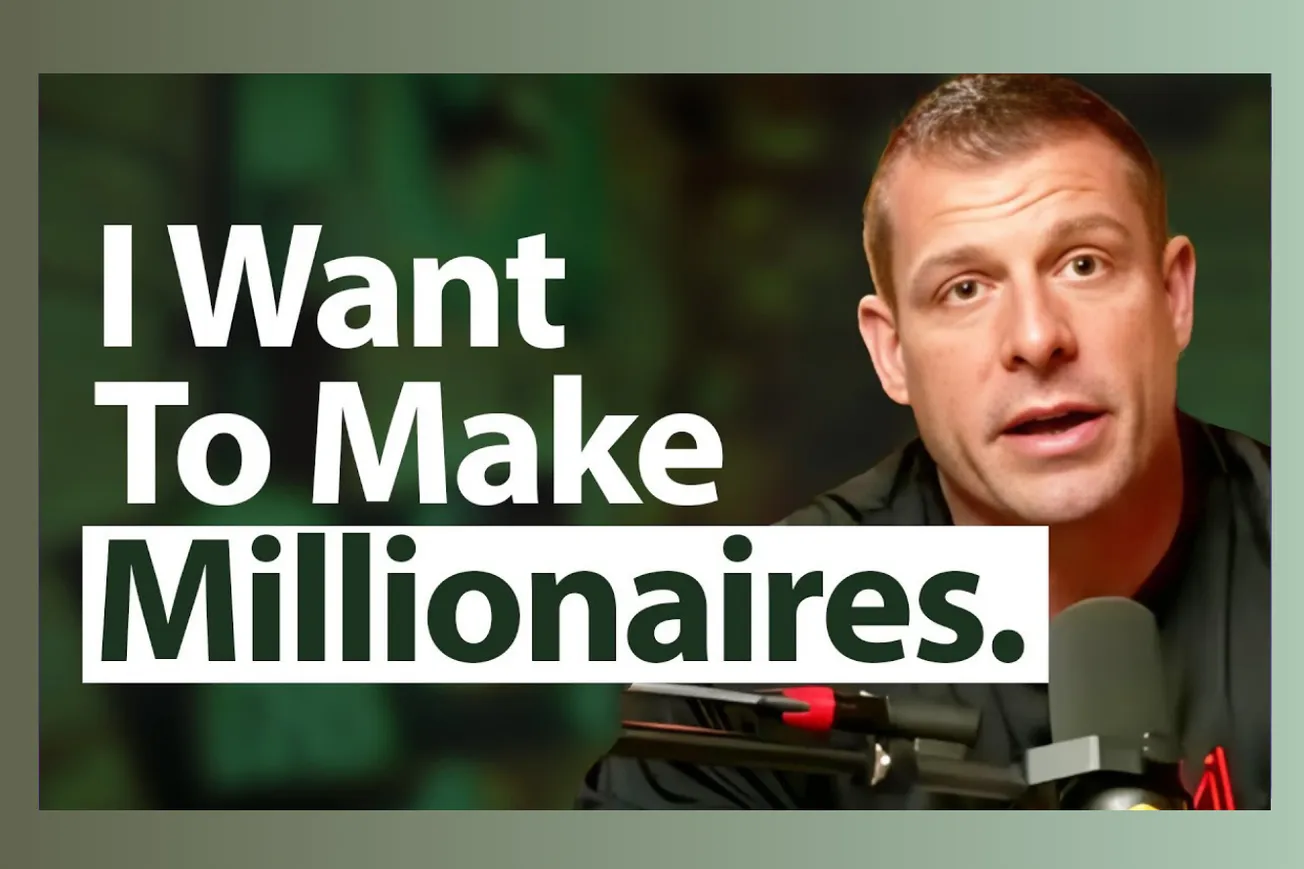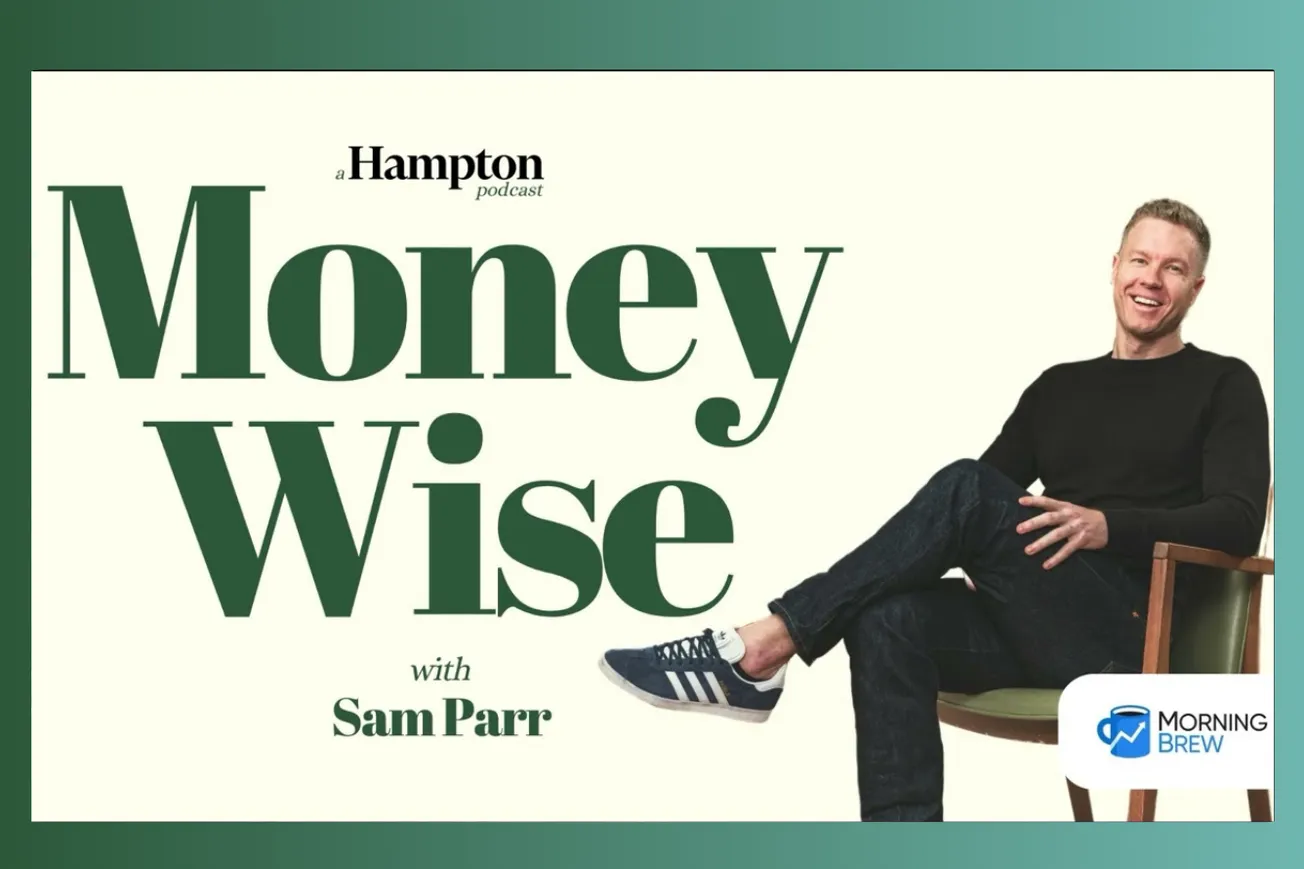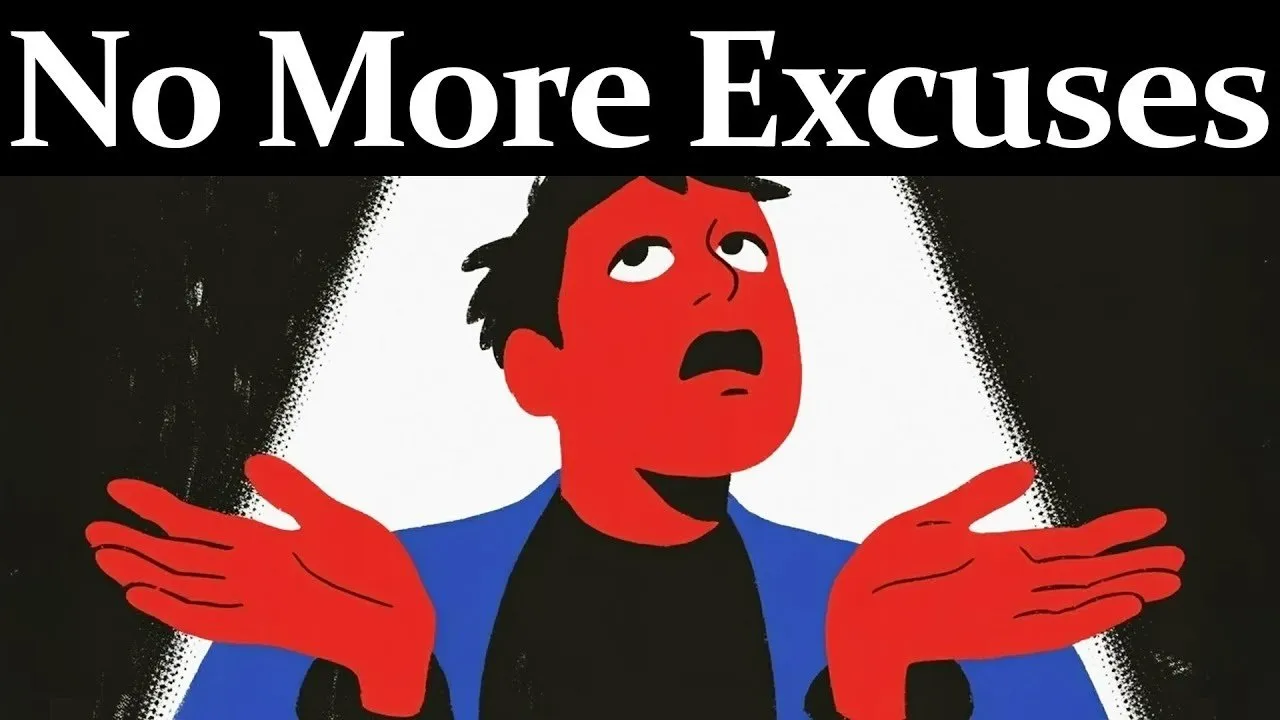Table of Contents
How Nick Huber built an 8-figure net worth from sweaty startups and smart real estate plays, why he keeps over $2M liquid and doesn't touch stocks, his exact monthly burn (including the jet), and the psychology behind avoiding lifestyle creep.
A look at how entrepreneur Nick Huber maintains a $25K monthly burn rate despite a $25-50 million net worth, his journey from lawn care to storage facilities, and why he's borderline paranoid about fixed costs.
Key Takeaways
- Nick Huber's net worth fluctuates between $25-50 million depending on market conditions, built primarily through self-storage facilities and business equity
- Despite his wealth, he maintains a strict $25K monthly burn rate and keeps $2+ million in cash for business operations and emergencies
- His income is extremely lumpy, ranging from $150K-500K per month, averaging around $250K, which drives his conservative spending approach
- He owns a private jet (1/4 share for $900K) but justifies it as necessary for his geographically dispersed business interests and family
- Lifestyle creep anxiety stems from his belief that "the only way to lose this game is to run out of cash" - a principle learned from early business struggles
- His monthly expenses break down to housing ($2.3K), childcare/nanny ($7K), health insurance/care ($5K), jet overhead ($3K), and miscellaneous ($5K)
- The entrepreneur maintains his frugal mindset through conscious decision-making, avoiding large fixed costs, and keeping the ability to cut expenses to $10-15K if needed
- His next goal is reaching $1 million monthly profit, at which point he'll consider upgrading his lifestyle significantly
Timeline Overview
- 00:00–01:06 — Introduction to Nick Huber's Success: Overview of his 8-figure net worth journey and what drives his financial philosophy
- 01:06–05:33 — Nick Huber's Financial Breakdown: Detailed analysis of his $25-50M net worth, including real estate holdings, business equity, and liquid assets
- 05:33–08:10 — Nick's Humble Beginnings: Growing up in rural Indiana with frugal parents who instilled strong work ethic and money consciousness
- 08:10–09:20 — The Lawn Care Business: How a $280 first-day payment at age 13 hooked him on entrepreneurship and set his life trajectory
- 09:20–14:37 — Building Storage Squad: The evolution from college startup to self-storage empire, including the pivotal 2019 refinancing moment
- 14:37–18:46 — The Challenges of Entrepreneurship: His mental breakdown in Boston, the necessity of pain in business building, and lessons learned from near-failure
- 18:46–20:48 — Nick's Frugal Lifestyle: How he deliberately keeps overhead low despite wealth, living in the same $289K house since 2017
- 20:48–21:48 — Breaking Down Monthly Expenses: Exact breakdown of his $25K monthly burn including housing, childcare, health, and jet costs
- 21:48–23:26 — Managing Lifestyle Creep: His conscious approach to avoiding expensive fixed costs and the psychology behind spending decisions
- 23:26–25:37 — The Justification for Owning a Jet: How he rationalizes the private jet purchase as a business necessity rather than lifestyle inflation
- 25:37–26:22 — Avoiding Fixed Costs: Strategic approach to maintaining flexibility by keeping most expenses variable rather than fixed
- 26:22–29:44 — Balancing Ego and Humility: How he manages confidence and ego while staying grounded and avoiding the typical pitfalls of new wealth
- 29:44–30:46 — The Role of Family in Staying Grounded: How having young children keeps him humble and focused on what matters beyond business success
- 30:46–32:26 — The Importance of Community: Building support networks through platforms like Hampton and trusted advisors for entrepreneur-specific challenges
- 32:26–38:17 — Navigating Media and Entrepreneurship: His decision to focus on building businesses rather than becoming a media personality
- 38:17–40:03 — Financial Highs and Lows: The emotional roller coaster of lumpy income, including $900K tax bills and the psychological impact
- 40:03–41:16 — Support Systems and Confidence: The importance of having people to share financial wins and struggles with as an entrepreneur
- 41:16–END — The Roller Coaster of Business: Maintaining confidence while accepting the inevitable ups and downs of entrepreneurial life
The $25-50 Million Portfolio: A Study in Asset Diversification
Nick Huber's wealth demonstrates how real asset ownership can create substantial net worth outside traditional investment vehicles. His portfolio reveals a deliberate strategy focused on cash-generating properties and equity stakes in businesses he understands deeply.
- Self-storage empire: 7 facilities owned outright with his partner, plus 69 additional properties with investors, purchased for approximately $100 million and potentially worth $130-150 million
- Business equity positions: 45% stake in RE Cost Seg (wouldn't sell below $20 million valuation) and 12.75% stake in Somewhere.com (purchased chunk for $5.2 million)
- Liquid reserves: $2+ million in treasuries and interest-bearing accounts, specifically maintained for business operations and emergencies
- No traditional investments: Notably absent from stocks, focusing entirely on businesses and real estate he can actively influence
As Huber explains his wealth philosophy: "I literally have no idea what my net worth is" because "What they're worth is a moving target and I don't really plan to sell them." This approach prioritizes cash flow and control over portfolio optimization.
From $280 to Millions: The Lawn Care Revelation
Huber's entrepreneurial journey began with a pivotal moment at age 13 that shaped his entire approach to money and work. The story reveals how early experiences with earning can fundamentally alter someone's relationship with traditional employment.
- The breakthrough day: After wanting to quit lawn care on his first day due to the physical difficulty, his father's advice to "not quit until you get paid the first time" changed everything
- The math revelation: Earning $280 for one day's work ($20/hour after expenses) compared to friends making $6/hour at Subway created an immediate understanding of entrepreneurial leverage
- Early wealth accumulation: By college, he had saved $40,000 from his lawn care business, demonstrating the power of high margins and frugal spending
- Career trajectory: "I've actually never ever gotten a W2 ever" - that first entrepreneurial experience set him on a path of complete self-employment
This origin story illustrates how early positive experiences with entrepreneurship can create lifetime patterns of business ownership and risk tolerance.
The Storage Squad Journey: From Nightmare to Goldmine
The evolution of Storage Squad demonstrates how businesses can transform from operational nightmares into wealth-generating machines through persistence and strategic pivots.
The early struggles (2011-2019):
- Started as student storage pickup/delivery service operating in 12 states across 25 colleges
- Managed 200+ part-time employees during peak season with massive logistical complexity
- Generated $2 million revenue but only 10-15% margins, creating high stress for modest returns
- Crisis moment: Mental breakdown in Boston after multiple truck accidents in two hours, questioning the entire business model
The transformation (2019-present):
- Strategic pivot to self-storage facility ownership using accumulated capital from operations
- 2019 refinancing breakthrough: Extracted seven figures tax-free to purchase additional facilities
- Reinvestment strategy: "I didn't buy a bigger house. I didn't buy a new truck... I put all that money into buying four more storage facilities"
- Portfolio expansion: Grew from single facility to 7 owned outright plus 69 additional properties
The journey illustrates how operational businesses can generate capital for higher-return real estate investments, creating compound wealth growth.
The $25K Monthly Burn: Intentional Lifestyle Design
Despite his substantial wealth, Huber maintains remarkably low personal expenses through conscious design choices that prioritize flexibility over luxury.
Housing and family expenses:
- $2,300/month: Same house purchased in 2017 for $289,000, deliberately avoiding upgrades
- $2,000/month: Daycare, sports, and camps for children
- $5,000/month: Nanny salary ($57K annually) for family support
Health and insurance:
- $3,000/month: Health insurance premiums (unused but maintained)
- $2,000-4,000/month: Private concierge healthcare for extended family members
- Investment in prevention: "Preventative health and things like that are just not a focus in the United States"
Transportation and miscellaneous:
- $3,000/month: Private jet overhead (1/4 ownership share)
- $5,000/month: Food, miscellaneous living expenses
- Variable costs: Additional vacation, travel, and discretionary spending as needed
Total committed expenses: $22,000-25,000 monthly, with ability to cut to $10,000-15,000 if necessary
The Private Jet Paradox: Justifying Luxury Through Utility
Huber's private jet ownership represents the tension between frugal principles and practical business needs, revealing how wealthy entrepreneurs rationalize significant purchases.
The practical justification:
- Geographic necessity: 1 hour 45 minutes from Atlanta airport, plus security time for commercial travel
- Business distribution: Storage facilities in rural locations across America, family in Indiana and upstate New York
- Family considerations: "Traveling, especially with kids, from where I live in Athens, is very difficult"
The financial structure:
- $900,000 purchase: 1/4 share of a Vision Jet (smaller than most turboprops)
- $3,000/month: Fixed overhead costs shared among partners
- $1,000/hour: Variable costs only when flying
- Shared fleet access: Multiple aircraft available through management company for scheduling flexibility
The psychological admission: "Did it feel super baller when you first got it? Yeah, it did." followed by conscious efforts to keep the purchase private from friends and children.
This purchase illustrates how successful entrepreneurs balance practical business needs with ego gratification while maintaining philosophical consistency about spending.
The Psychology of Lifestyle Creep Anxiety
Huber's approach to spending reveals deep psychological patterns formed during his business building years, creating a permanent fear of financial overextension.
Risk assessment framework:
- Income volatility: Monthly earnings range from $150K-500K creates uncertainty about sustainable spending levels
- Tax reality: $125K after-tax income in lower months with high fixed costs could create cash flow problems
- Investment opportunities: Need to maintain flexibility for business investments and acquisitions
Spending guidelines:
- Avoid fixed commitments: "I only pay for my plane when I fly it. I only pay for a summer vacation if I book it"
- Maintain cutting ability: Can reduce expenses to middle-class American levels if necessary
- Emergency preparedness: Multiple businesses with $200K-800K monthly overhead require substantial cash reserves
This anxiety serves as a protective mechanism against the lifestyle inflation that often accompanies rapid wealth accumulation.
Managing Ego and Humility in Wealth
Huber's approach to ego management reveals sophisticated thinking about how money changes people and relationships, with specific strategies to maintain groundedness.
Ego acknowledgment: "I have a massive amount of ego. It's what drives me to entrepreneurship... I just have this almost irrational level of confidence that my father instilled in me"
Humility practices:
- Social consciousness: Attending neighborhood cookouts where nobody knows about his wealth
- Genuine interest: "I am genuinely interested in other people, even if they're operating at a totally different level than me"
- Private approach: Deliberately avoiding displays of wealth around friends and children
The balance point: Understanding that "making money and keeping money are different skills" and that "the most common way people make their first million and then lose their first million is by losing that humility"
Natural humbling forces:
- Young children: "Kids are one of the things that actually makes me a better person... these four-year-olds do not give a shit what I'm doing at work"
- Business volatility: Regular setbacks and challenges prevent sustained overconfidence
- Community accountability: Maintaining relationships with people at different wealth levels
The Emotional Roller Coaster of Entrepreneurial Wealth
Huber's candid discussion of financial emotions reveals the psychological complexity of managing variable income and substantial wealth.
The income volatility cycle:
- High months: "One month you make a shitload of money and you're like, 'Oh my god, I'm rocking, man. I can do whatever I want to do'"
- Reality checks: "The next month you make an investment... you don't do a distribution and then you pay a 900k tax bill and you're like I am broke"
- Weekly swings: "On a Monday I'll be like we are rock and roll... And then the end of the week comes and I see paychecks go out and I'm like, I don't feel so hot"
Support system importance:
- Business partner: Dan Hagber knows "every single thing" and provides emotional stability
- Professional advisors: Accountant and attorney serve as confidants for financial decisions
- Peer community: Hampton provides forum for discussing taboo wealth topics with other entrepreneurs
Coping mechanisms:
- Liquid reserves: Maintaining substantial cash provides psychological security
- Conservative spending: Low fixed costs prevent financial stress during down periods
- Long-term perspective: Understanding that "every time I get really high, I get knocked back down. Every time I get really low, I get brought back up"
The Media vs. Business Decision
Huber's choice between media personality and business operator reveals strategic thinking about opportunity cost and personal fulfillment.
The media temptation:
- Ego appeal: "Yeah, it is. It's definitely ego. I care what people think. I want to be known"
- Message importance: Believes in promoting "sweaty startups" as wealth-building vehicles
- Natural ability: Acknowledges being good at teaching and communication
The business priority:
- Profitability focus: "Building businesses is more profitable" than media development
- Operational satisfaction: "It makes me feel alive when I'm making decisions that I get to see the outcome of a month later or six months later on a profit and loss statement"
- Growth potential: Believes RE Cost Seg could reach $250 million annual revenue, Somewhere.com could go public
The balanced approach:
- Continued media: Will maintain teaching and content creation but not as primary focus
- Book promotion: Published "The Sweaty Startup" to share wealth-building philosophy
- Strategic messaging: Focusing on unsexy but profitable business opportunities rather than tech unicorns
Future Goals and Wealth Thresholds
Huber's next financial milestone reveals how wealth goals evolve and the psychology of "enough" in entrepreneurial contexts.
The $1 million monthly target:
- Current state: Averaging $250K monthly income with peaks at $500K
- Threshold significance: $1 million monthly would represent psychological permission for lifestyle upgrades
- Timeline uncertainty: No specific deadline, dependent on business growth and market conditions
Lifestyle upgrade considerations:
- Home improvement: Potential $5 million house with basketball court for Georgia summers
- Confidence level: Would need sustained income to justify permanent lifestyle increases
- Risk management: Still maintaining conservative approach until income stability improves
Business building priorities:
- Bolt Storage expansion: Scaling self-storage portfolio for long-term wealth
- RE Cost Seg growth: Targeting $250 million annual revenue in cost segregation services
- Somewhere.com development: Potential public company opportunity in remote work space
The goal structure reveals how entrepreneurs use financial milestones to justify lifestyle decisions while maintaining growth focus.
Practical Applications for Entrepreneurs
Huber's approach offers specific frameworks for entrepreneurs managing wealth building and lifestyle decisions.
Cash management principles:
- Emergency reserves: Maintain 6-12 months of business expenses in liquid assets
- Income smoothing: Prepare psychologically and financially for revenue volatility
- Tax planning: Reserve substantial amounts for quarterly tax obligations
Spending philosophy:
- Fixed vs. variable costs: Prioritize variable expenses that can be eliminated during downturns
- Lifestyle inflation timing: Delay major upgrades until income sustainability is proven
- Value-based purchasing: Justify expenses through business utility rather than pure enjoyment
Psychological management:
- Peer support: Build relationships with other entrepreneurs facing similar challenges
- Humility practices: Maintain connections with people at different wealth levels
- Long-term perspective: Accept emotional volatility as inherent to entrepreneurial wealth building
Investment strategy:
- Expertise focus: Invest in businesses and assets you understand and can influence
- Geographic diversification: Spread risk across multiple markets and property types
- Control maintenance: Prioritize ownership stakes that provide operational input
Common Questions
Q: How does Nick Huber justify owning a private jet while preaching frugality?
A: He bought a 1/4 share for $900K as a business necessity due to his rural location and geographically dispersed business interests, with only $3K monthly fixed costs.
Q: What's the biggest risk to Nick's wealth according to his philosophy?
A: Running out of cash due to high fixed costs during business downturns - which is why he maintains over $2M liquid and keeps monthly burn under $25K.
Q: How does Nick prevent lifestyle creep despite his wealth?
A: He maintains conscious anxiety about spending increases, avoids fixed costs, and structures most expenses as variable so he can cut to $10-15K monthly if needed.
Q: What drives Nick's conservative spending despite substantial net worth?
A: His income varies from $150K-500K monthly, and he's only been wealthy for 4 years, creating uncertainty about sustainability and preference for cash flow over consumption.
Q: How does Nick stay humble despite his success?
A: Through young children who don't care about his work, maintaining friendships across wealth levels, and experiencing regular business setbacks that provide natural humbling.
Nick Huber's story demonstrates how entrepreneurs can build substantial wealth while maintaining the psychological and financial disciplines that created their success. His approach prioritizes optionality, cash flow, and long-term sustainability over short-term consumption or status signaling.
The key insight: treating wealth as a tool for business building rather than lifestyle enhancement can create both financial security and continued growth opportunities, while protecting against the overconfidence and spending patterns that often destroy entrepreneurial fortunes.

